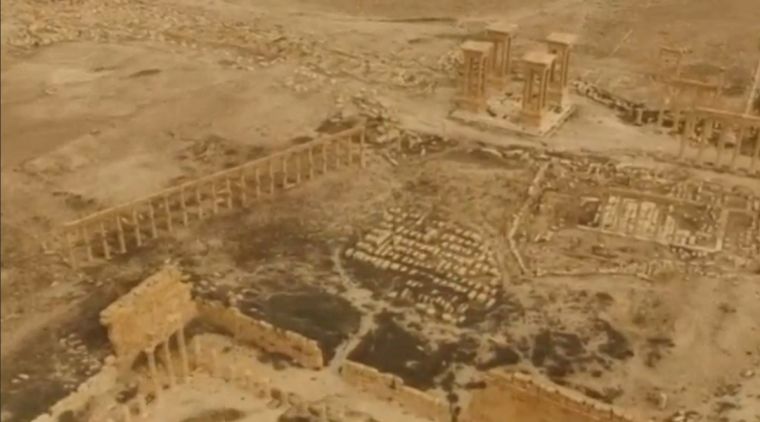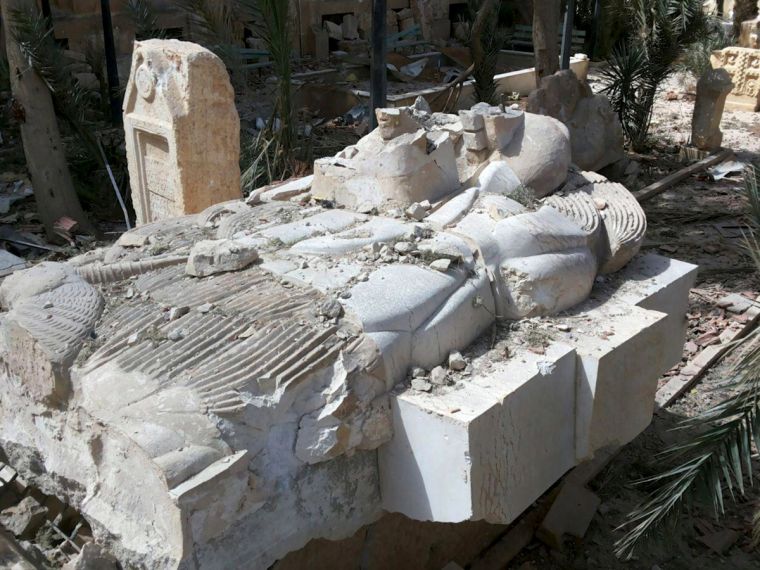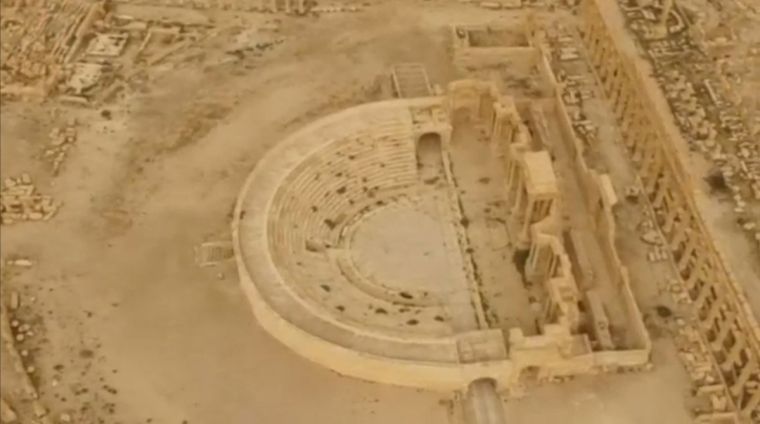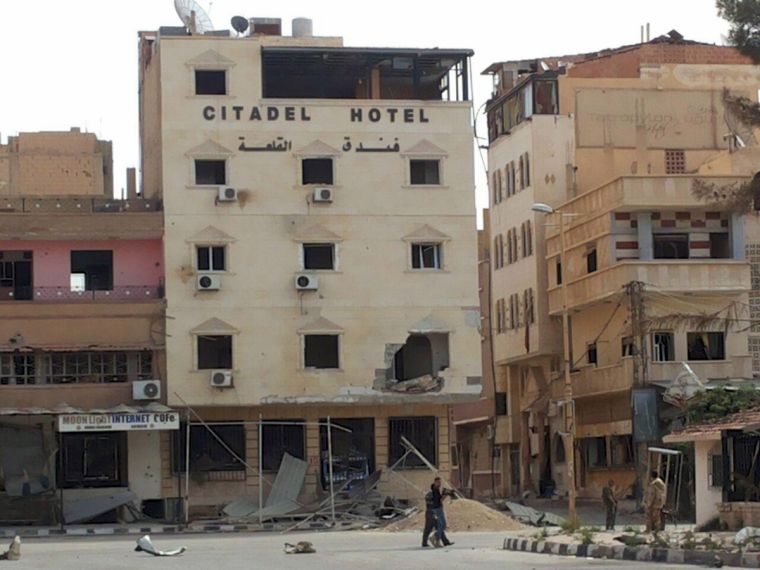Hope for Palmyra after ISIS occupation: Large parts of ancient city survived
As the first pictures of the ancient city of Palmyra appear afters its liberation from ISIS occupation, more of the ancient citadel seems to have survived than previously thought.

Islamic State militants blew up several monuments from the historic desert citadel during its 10-month occupation of the city, including the Temple of Bel and Arch of Triumph.
However, Syria's antiquities chief has said other ancient landmarks were still standing and has pledged to restore the damaged monuments.

"Palmyra has been liberated. This is the end of the destruction in Palmyra," Mamoun Abdelkarim told Reuters on Sunday.
"How many times did we cry for Palmyra? How many times did we feel despair? But we did not lose hope."
Authorities had been expecting the worst, but Abdelkarim told Agence France-Presse that "the landscape, in general, is in good shape".

"We were so scared we would enter the ruins and find them completely destoryed," a Syrian soldier told AFP.
"We were afraid to look ... But when we entered and saw it, we were relieved," he said.
The modern district of Palmyra, formerly home to 70,000 people, suffered more extensive damage.

The loss of Palmyra on Sunday is one of the biggest setbacks for the jihadist group since its declared caliphate in 2014 across large parts of Syria and Iraq.
It is also a major victory for President Bashar al-Assad and ally Russia, casting them as critical to the international fight against Islamic State.
The Syrian army said the city, home to some of the most extensive ruins of the Roman Empire, would become a "launchpad" for operations against Islamic State strongholds in Raqqa and Deir al-Zor, further east across a vast expanse of desert.
UN Secretary-General Ban Ki-moon, speaking in Amman, said he was "encouraged" that Syrian government forces had been able to drive Islamic State out of Palmyra and that the city's ancient heritage could now be preserved.
Additional reporting by Reuters











